Are you struggling with how to provide feedback on client proposals? Crafting the right response can be crucial for maintaining a positive relationship and ensuring clarity in communication. In this article, we'll explore effective strategies to articulate your thoughts and suggestions while reinforcing your professional rapport. So, let's dive in and discover how to create impactful feedback that resonates with your clients!
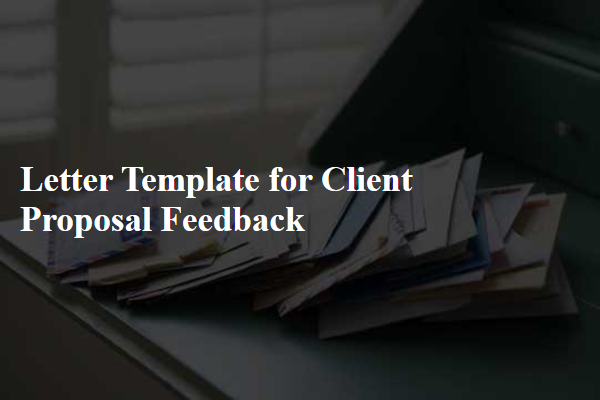
Clarity and coherence
Client feedback is essential for improving proposal clarity and coherence, ensuring that key points and objectives resonate with stakeholders. A well-structured proposal should clearly highlight objectives, scope of work, deliverables, timelines, and pricing, making it easily digestible. For instance, using bullet points can enhance readability, while a concise executive summary at the beginning captures the essence of the proposal. Additionally, utilizing headings and subheadings organizes information effectively, guiding the reader through the document. Consistent terminology and avoidance of jargon facilitate comprehension, enabling stakeholders to grasp complex concepts quickly. Overall, focusing on these elements fosters constructive feedback and enhances the chances of approval.
Tone and professionalism
A professional proposal should maintain a positive tone, expressing gratitude for the client's feedback while addressing key aspects of the proposal. In the realm of business communication, clarity and respect are paramount. The response should reflect a thorough understanding of the client's needs, showcasing a willingness to adapt and enhance the proposal based on their insights. This will foster collaboration and build a stronger partnership. By acknowledging specific suggestions and outlining the steps to incorporate them, the proposal will not only appear more tailored but also align better with the client's vision.
Specificity and detail
Client proposals often require specificity and detail to ensure clarity and understanding. For instance, a proposal for a marketing campaign might include particular metrics such as a target conversion rate of 15% within six months. Detailing the budget, such as allocating $10,000 towards digital advertising on platforms like Facebook and Instagram, provides transparency. Clear objectives, such as increasing brand awareness among millennials in urban areas, help gauge success. Additionally, incorporating timelines, like a three-phase approach over one year with quarterly reviews, sets expectations for accountability. Specific references to tools, such as Google Analytics for tracking web traffic, enhance credibility. Effective feedback on such proposals should focus on the clarity of these details to refine understanding and implementation.
Actionable suggestions
Client proposal feedback should focus on clarity, coherence, and relevance. Consider incorporating specific numbers, like project timelines or budget estimates, to provide a concrete framework. Evaluate the proposed strategies in relation to industry benchmarks, referencing successful case studies or similar projects undertaken by renowned companies. Highlight areas requiring more detailed explanations, particularly concerning deliverables, milestones, and resources. Emphasize the importance of aligning proposals with clients' unique needs and objectives, possibly through qualitative data gathered during initial consultations. Suggest restructuring sections for improved flow, ensuring each part contributes to the overall narrative of value and expertise offered.
Overall structure and layout
The overall structure and layout of a client proposal significantly influence its effectiveness and clarity. An organized document should typically include precise sections such as an executive summary outlining key points succinctly, a detailed description of services offered tailored to client needs, and a comprehensive timeline with milestones. The use of visually appealing elements like charts or tables in sections related to data analysis can enhance understanding. Consistent formatting, such as font size (usually 11-12 pt) and headings, maintains a professional appearance throughout the proposal, contributing to readability. Furthermore, a clear call-to-action, positioned at the conclusion, guides the client towards the next steps, reinforcing the proposal's purpose and urgency. Overall, adopting a logical flow and cohesive design ensures the proposal resonates with the client, fostering engagement and response.

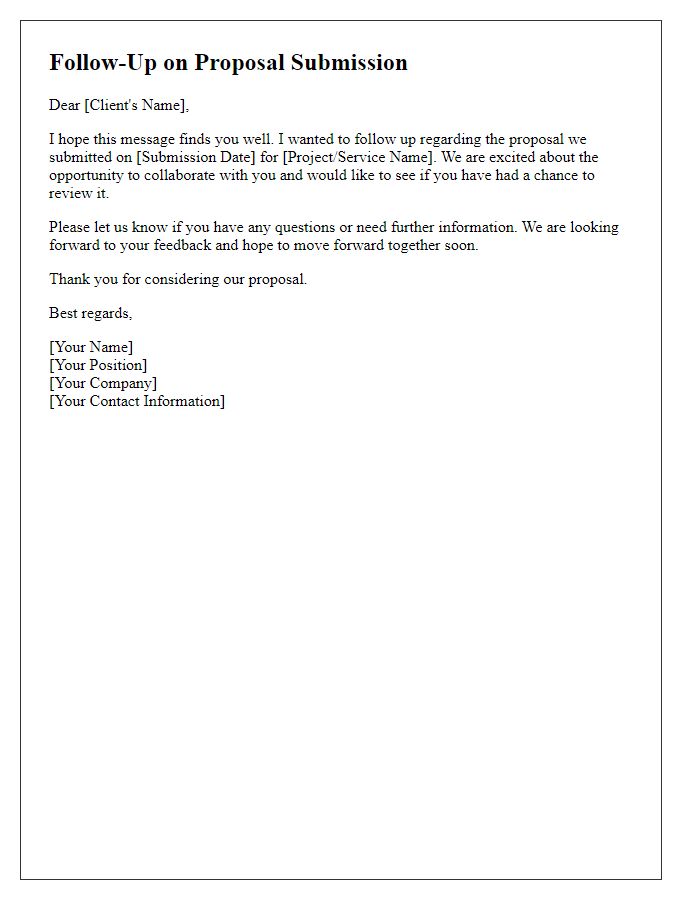
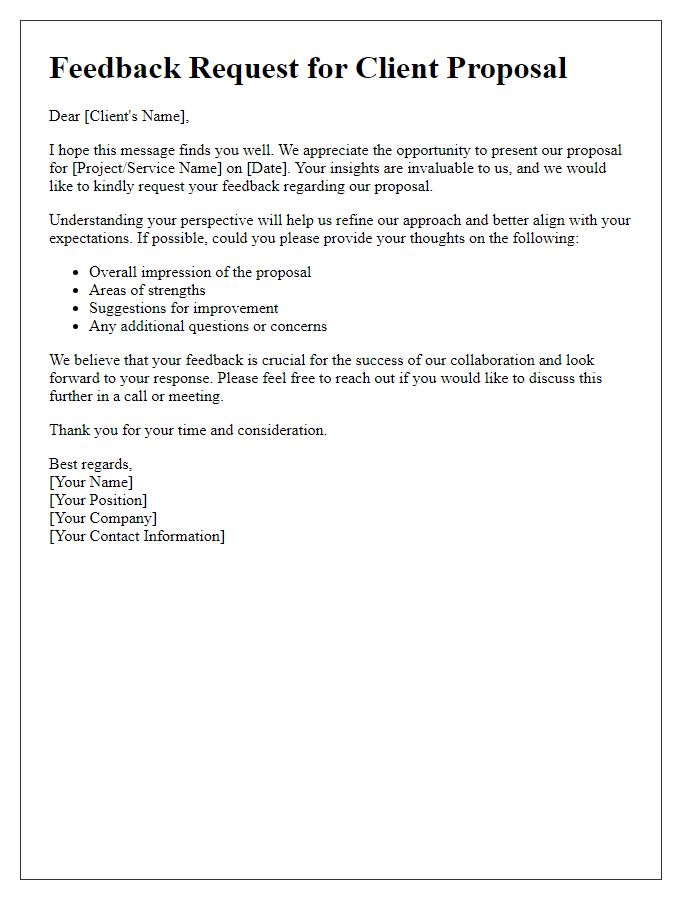
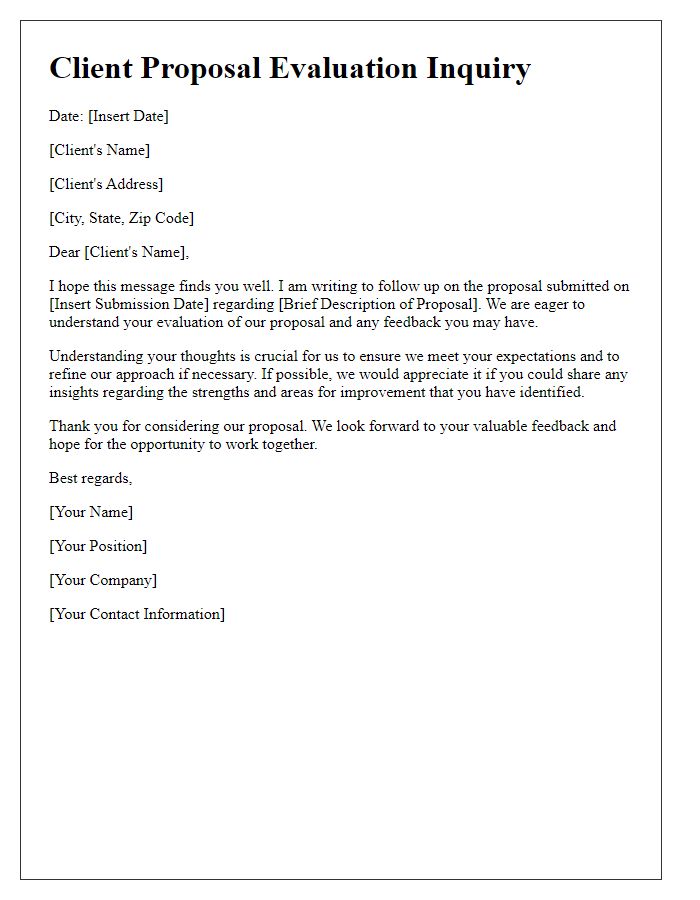
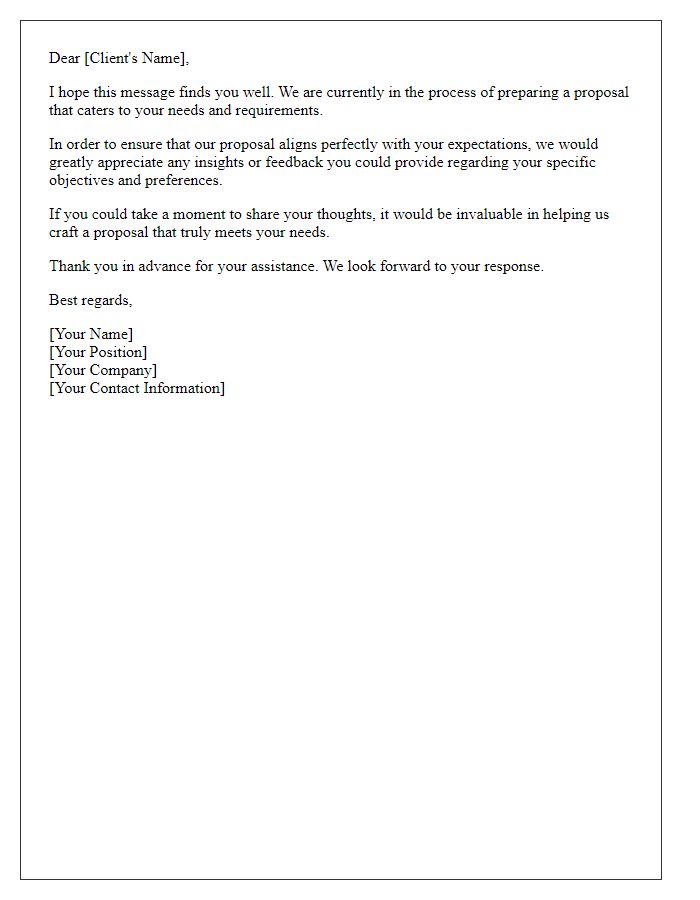
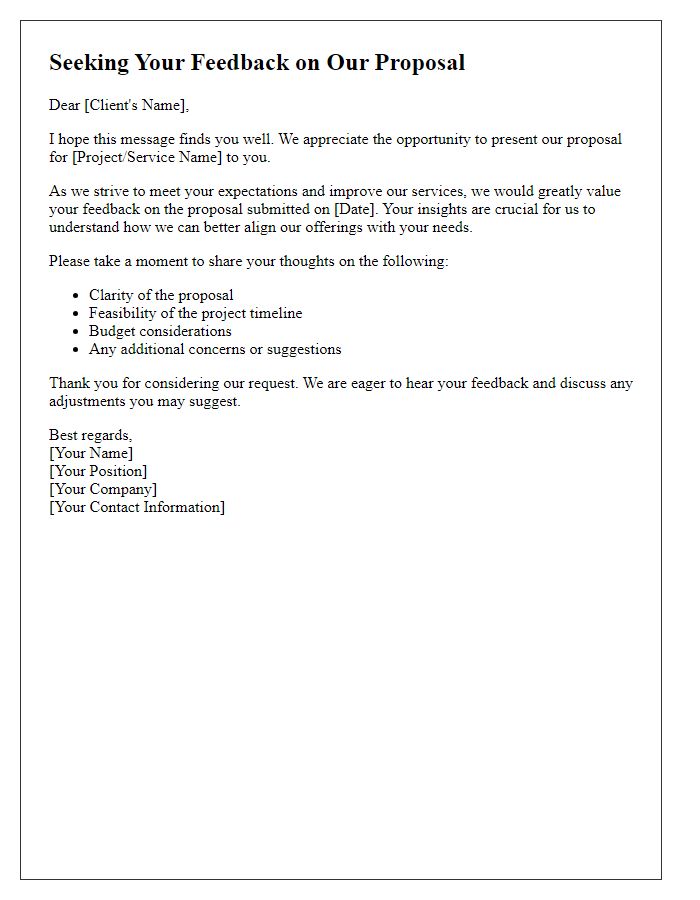
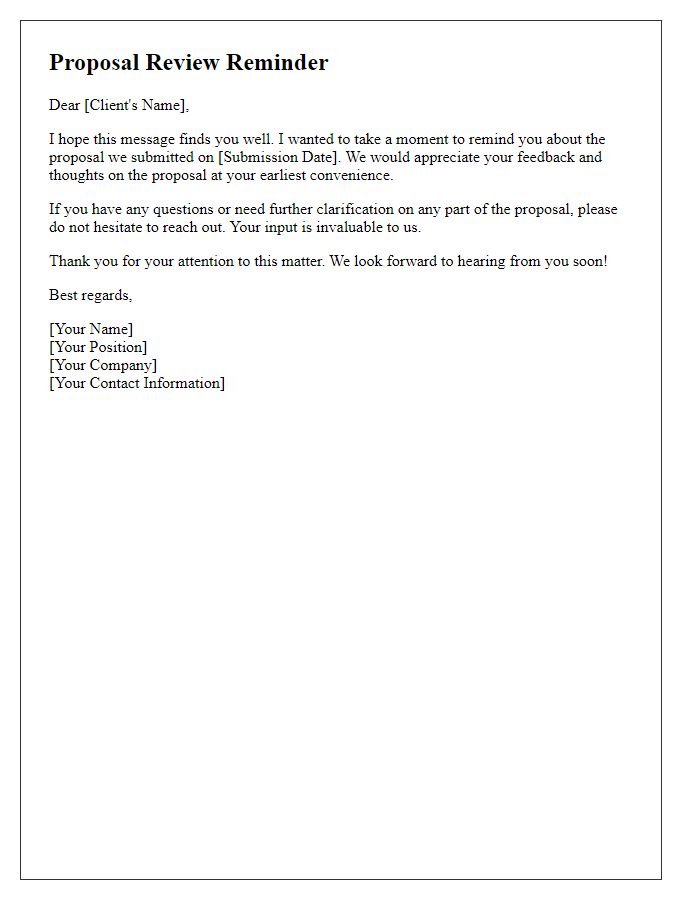
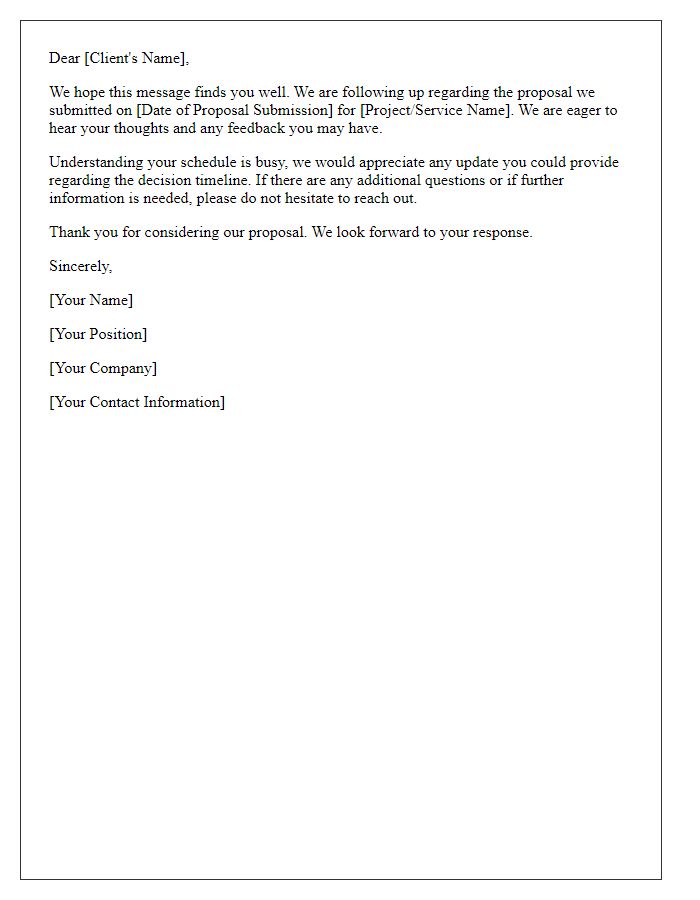
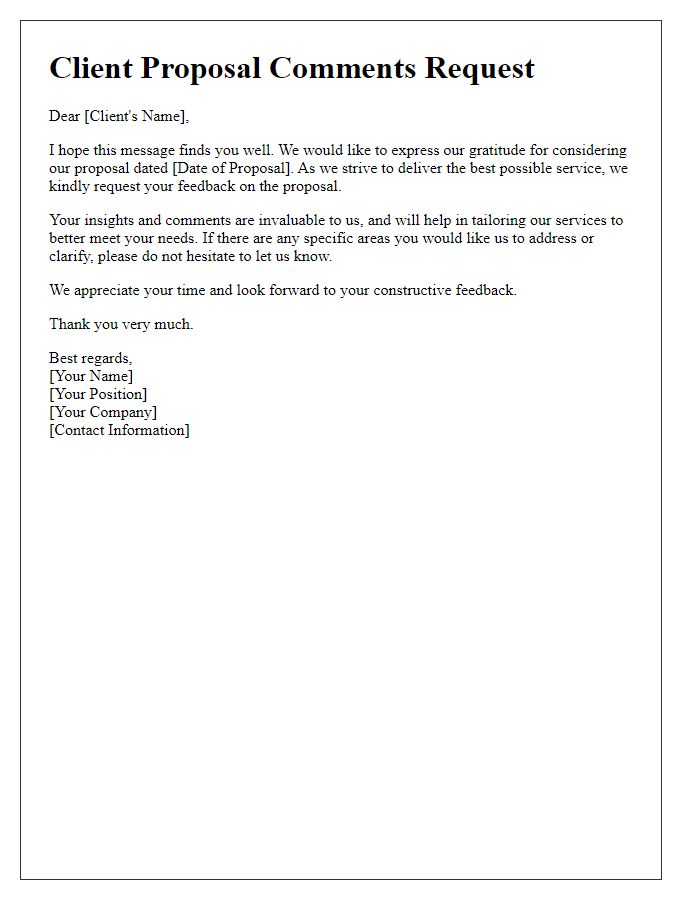
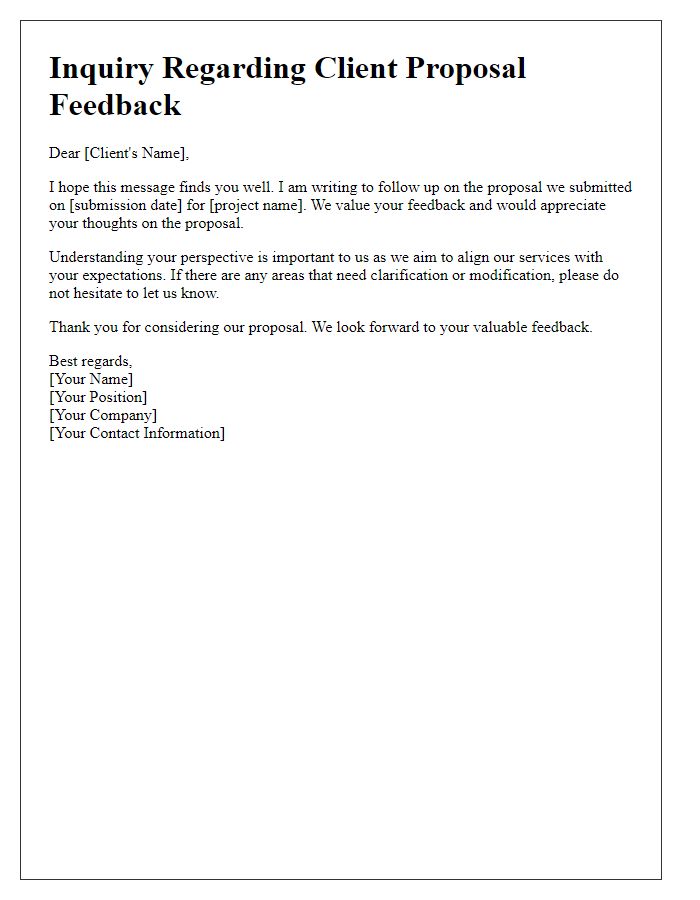
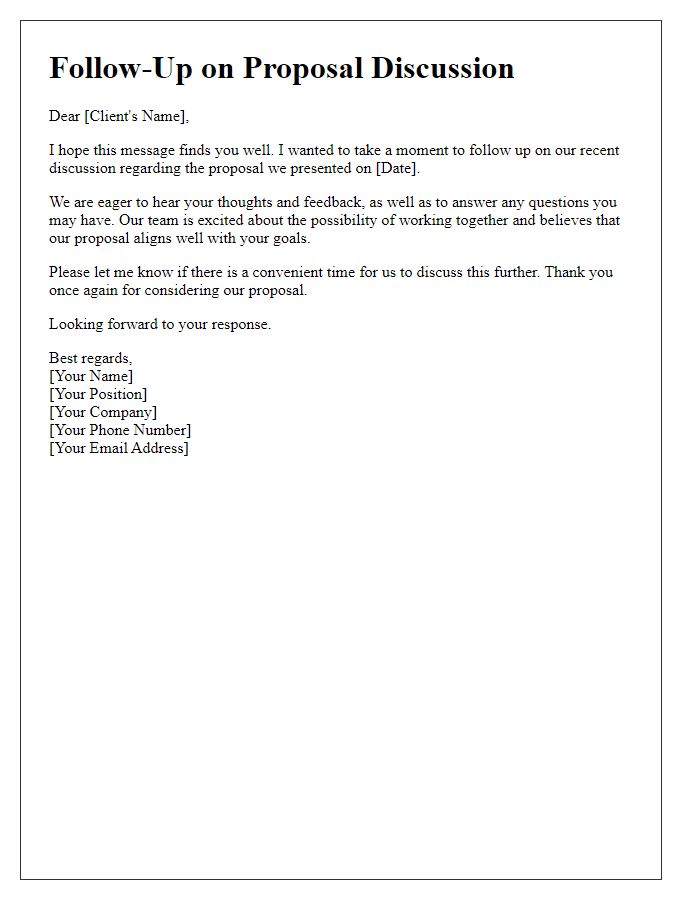


Comments